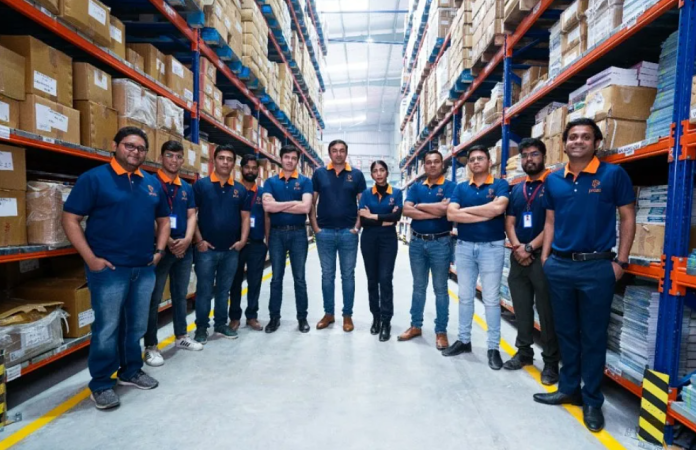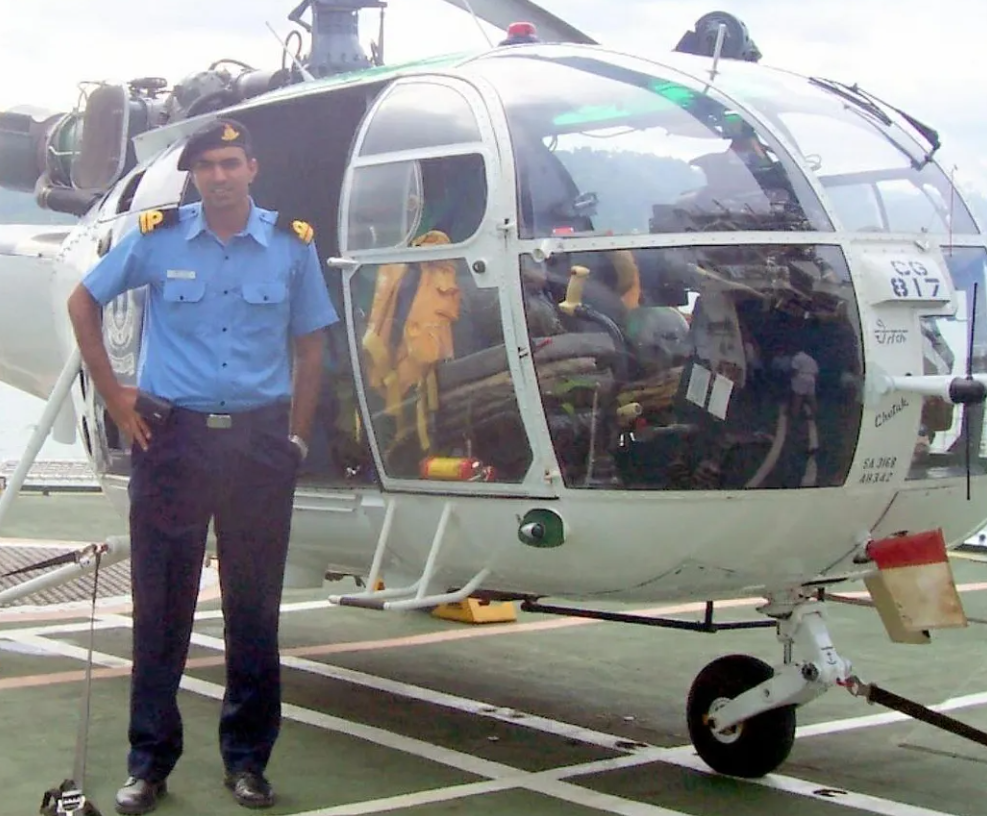
Navy Doctor Builds A Rs 55 Crore Brand While Assisting Small Companies In Shipping As Quickly As Amazon
Date:

Share post:
Ashivini Jhakar, 38, of Gurgaon, worked as a doctor for the Indian Navy for six years before starting a successful firm in the e-commerce sector. He was awarded the coveted Sainya Seva medal in 2011 for his work as the sole medical officer in a village in the Andaman & Nicobar Islands following the earthquake and tsunami that struck the Indian Ocean in 2004.
Four years later, Ashvini established Prozo, a cloud supply chain business and “e-commerce facilitator” that offers warehousing, freight, and integrating marketplace innovation solutions to small- to medium-sized businesses (SMEs), direct-to-consumer (D2C) brands, and businesses. The Noida-based company logs 30,000–50,000 business–to–business (B2B) and business–to–consumer (B2C) orders daily.
Prozo now has seven warehouses around the nation. “Company can access our services with little money or operational infrastructure. Brands only pay for the items they use from our pay-per-use system and store them in our warehouses. Therefore, according to him, even if you run a very tiny business with monthly sales of Rs 20 lakh, you can store your goods for as little as Rs 2 per unit.
Despite having a 25 crore rupee yearly turnover during the most recent fiscal year, it is on track to reach its aim of 75 crore rupees for 2021–22. He shares, “As of this month, we’ve already crossed Rs 55 crore.”
‘Third-Generation Army Boy’
Ashvini was born in the small village of Bhurawas in the Jhajjar district of Haryana. He resides in Gurgaon with his parents, his orthodontist wife, and their four-year-old daughter. His father served in the Indian Army as a junior commissioned officer, while his mother taught in a government school.
“Like me, my grandfather served in the junior commissioned officer ranks. He had fought for the UK when India was under the control of English armies. You might say I was an Army guy in my third generation,” he grins. Despite his interest, Ashivini claimed that it was customary in those days for people to select careers in civil service, medicine, or engineering.
“There was, therefore, always a military influence on my father’s side, but I was introduced to medicine by my older sister, who is now a regional medical officer in Gurgaon. I decided to become an Army officer and a doctor by the time I finished high school, and I was recruited to the Armed Forces Medical College,” he continues.
After graduating in 2006, Ashvini was sent to his first position as a surgeon sub-lieutenant in Visakhapatnam, Andhra Pradesh. A year and a half later, while on duty with the Indian Coast Guard in Campbell Bay in the Andaman & Nicobar Islands, about a two-hour helicopter ride from the country’s capital Port Blair, he was elevated to the status of Surgeon Lieutenant, which is comparable to a Captain rank in the Indian Army.
Ashvini had given another promotion and a job in Mumbai two years later. He was promoted to Surgeon Lieutenant Commander, the Indian Army’s Major rank. He was crucial in helping to care for the victims of the 2008 terrorist strikes at the Taj and Oberoi hotels as the medical officer in command at the Colaba chopper base.

Despite the significance that these encounters gave Ashvini, he claims that he anticipated his goal of becoming a doctor in the Navy would end. Ashivini had suffered injuries throughout school, necessitating two surgeries on his right knee.
Even though he had managed to get a spot in the Navy, he claimed he couldn’t take the chance of becoming a care receiver himself. “The Army defines fitness significantly differently than anyone else does. There are times when doctors had to carry the stretchers themselves or race down the hallways of their ships to evacuate passengers, he says, adding that he didn’t want to go further down this road.
“Master Of My Destiny”
Ashvini claims that after leaving the Indian Navy in late 2011, he decided against going down the apparent path of opening a private practice or working for a pharmaceutical firm. He joined the Indian School of Business (ISB) in Mohali, Chandigarh, after becoming eligible for the GMAT.
“I went in with an open mind to consider my possibilities even though I wasn’t sure if my life experiences were pertinent or sufficient. The cohort at the ISB was incredibly diverse, and some had significantly more professional experience than I did. Ashvini was hired by McKinsey & Company for a Delhi-based position shortly after graduating. He had the chance to speak with business advocates here, where he eventually realised how passionately he wanted to pursue entrepreneurship.
“These were individuals who could act freely in support of causes they supported. They were in a complete state of empowerment and control of their fate. I had the desire to be one of them, he claims.
Prozo today has 170 employees, up from the 25 or so when it first started as a bootstrapped business. They collaborate with companies including Lavie, Winmagic, McGraw Hill, and Pee Safe.
He claims, “Even brands affiliated with them can store their merchandise at our warehouses because our facilities have fast-delivery labels of ‘Amazon-Prime’ and ‘Flipkart-Assured. However, we provide our network of seller platforms, which process both B2B and B2C orders, to those who still need to.
According to Ashvini, his time in the Navy is where his “contextual leadership” first emerged.
“I know when to take the front lines and when to retreat backstage and let my staff enjoy the spotlight. He admits I can be a 10-feet kind of boss and a micromanager. “Prozo’s strengths are prospects for businesses, and we want to keep giving SMEs and direct-to-consumer brands exposure. We intend to assist 10,000 firms in the next three years in achieving their e-commerce goals.
